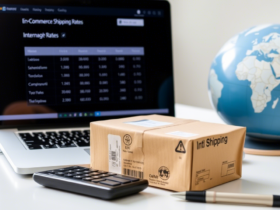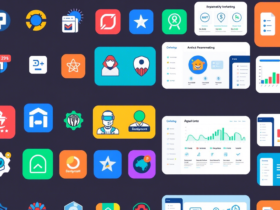A business can expand its customer base from local to global by setting up an e-commerce site, either as a standalone or as an addition to physical sales. However, a website is not the only tech tool required to succeed in a global and round-the-clock market.
A successful e-commerce venture needs a strong tech stack, from order management to personalization. Below, 16 experts from the Forbes Technology Council share the key tools and strategies that an e-commerce company should use to increase sales and stay ahead of the competition.
1. Data Warehouse And Dashboards
Data is essential for e-commerce teams, but many lack the proper detail and segmentation to succeed. A data warehouse and some dashboards can reveal new opportunities for any growing business. Leaders can learn about market trends and get guidance on the best way to proceed.
2. Data Management And Analytics Platforms
As a data-driven leader, I think every team should have various ways to analyze the data and comprehend the situation. For project management, Jira might be a good option. For platform observability, Datadog could be useful. For business reports, Tableau may be suitable. No matter what tool you use, you need to grasp the data. – Alberto Silveira, Lawnstarter Forbes Technology Council is a selective community for top-notch CIOs, CTOs, and technology leaders.
3. Marketing On LLM Search Engines
To boost their marketing, e-commerce teams need to list their products on search engines that use large language models. These platforms have artificial intelligence that helps you attract customers who are searching faster, which can increase your sales.
4. Customer Data Extraction And Analysis
Data is the key to success for any business, especially for e-commerce businesses. E-commerce teams need to find tools and technology that can help them safely access and analyze customer data. By knowing your customers better, you can create personalized experiences that increase customer satisfaction and loyalty.
5. Multiplatform Analytics
E-commerce teams face the challenge of tracking their key performance indicators across different platforms (like Shopify, Google Analytics, and Klaviyo). An AI assistant can help them by extracting insights from these data sources, identifying performance problems, and suggesting solutions. With generative AI-powered analytics, teams can streamline analysis and get ahead of the curve on products, customers, and distribution in seconds.
6. Geo-Targeted Ads
Technology that links their sales and marketing plans to their supply chain data is essential for e-commerce brands. This enables them to make geo-targeted ads with quick-delivery guarantees based on the shopper’s location and the stock that’s ready at the nearest warehouse or fulfillment center.
7. Secure, Efficient Payment Solutions
E-commerce platforms rely on secure and efficient payment processing solutions. They protect customer payment information, creating trust and enabling a seamless checkout process that can boost sales and lower cart abandonment.
Read also:
How to Boost Your eCommerce Sales with a Better Checkout Process
8. Web Application Firewall
A WAF, or Web application firewall, is a vital component of any e-commerce team’s tech stack. It protects sensitive data from cyberattacks; meets the standards of regulations, such as PCI-DSS; improves website speed and efficiency; and monitors the web traffic in real-time. In short, a WAF is a key factor for e-commerce achievement, integrating security, compliance and performance improvement in one solution.
9. Customer Support Ticket System
For any e-commerce tech stack, a customer support ticket system is crucial. It handles and simplifies customer support inquiries and makes customer support operations clear. A ticketing system can cope with the growing demand as the business expands, unlike systems based on manual or email methods. Make sure the system you select offers support and reporting for multiple channels.
10. CRM
A CRM, or customer relationship management system, is essential for e-commerce teams. It consolidates customer data, enabling a comprehensive insight and efficient control of customer interactions. With a CRM, e-commerce businesses can customize customer experiences, adapting product suggestions, deals, and communication to personal tastes.
11. Rapid Customer Contact Resolution
Customer retention and repurchase depend on speed and effectiveness in resolving contacts. A large portion of customer inquiries are WISMO, or “where is my order,” contacts. By using sophisticated generative AI and compassionate conversational chatbots, brands can actively update customers on their order statuses, handle WISMO inquiries automatically, and provide account summaries, leading to reduced costs, quicker responses, and happier customers.
12. Social Media Automation
A social media automation tool is essential for an e-commerce team to increase its market share. It enables them to reach and attract online customers through tailored social media campaigns.
13. Data Classification And Discovery
Data security is a key concern for e-commerce teams in a time of frequent data breaches and stricter customer privacy laws. A powerful tool for data classification and discovery is vital for this purpose. It allows teams to know the nature, location, and accessibility of their data, so they can safeguard customer data and comply with regulations.
14. Blockchain-Based Supply Chain Management
A blockchain-based tool for supply chain transparency lets e-commerce teams show customers the verified history of their products from production to shipment. This transparency fosters trust and tackles issues of product quality and ethical origin, making e-commerce more ethical and sustainable.
15. SEO Optimization
An e-commerce business needs a strong search engine optimization tool like Moz Pro, Screaming Frog, or Yoast SEO to boost its online presence, draw more visitors, and grow organically.
16. Message Broker Or Event Streaming Platform
A message broker or event streaming platform that performs well is essential for e-commerce teams. It allows microservices to communicate and share data in real-time, which helps them deal with events such as order updates and inventory changes and guarantees a fast and adaptable e-commerce system.





Leave a Reply